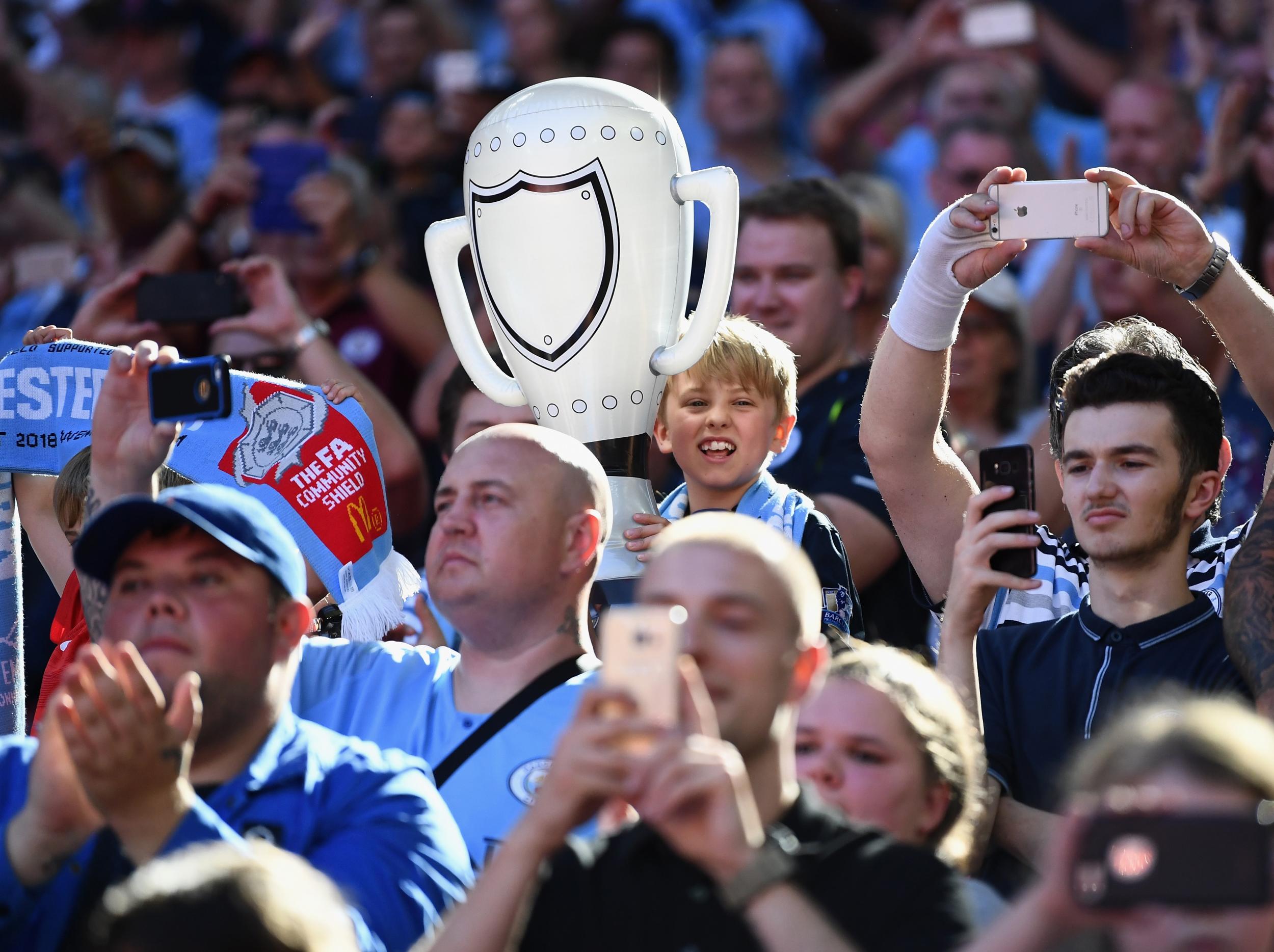What Aston Villa’s long odds of beating Man City in today’s Carabao Cup final tell us about state of football
Two clubs that were once not so dissimilar arrive at Wembley with entirely different expectations

Your support helps us to tell the story
From reproductive rights to climate change to Big Tech, The Independent is on the ground when the story is developing. Whether it's investigating the financials of Elon Musk's pro-Trump PAC or producing our latest documentary, 'The A Word', which shines a light on the American women fighting for reproductive rights, we know how important it is to parse out the facts from the messaging.
At such a critical moment in US history, we need reporters on the ground. Your donation allows us to keep sending journalists to speak to both sides of the story.
The Independent is trusted by Americans across the entire political spectrum. And unlike many other quality news outlets, we choose not to lock Americans out of our reporting and analysis with paywalls. We believe quality journalism should be available to everyone, paid for by those who can afford it.
Your support makes all the difference.As we await the ritual slaughter of Aston Villa by Manchester City in tomorrow’s Carabao Cup final, it is worth a scan of bookmakers’ odds. Villa are available at 20-1 to take home the trophy. In a two-horse race.
Want to understand the madness surrounding City and the battle with Uefa over Financial Fair Play (FFP)? Here it is encapsulated in one match, a final that should be, more or less, a clash of equals.
Before Abu Dhabi began to artificially inflate City’s status with cash 12 years ago, these two clubs were more or less reflections of each other. Both had won one title, a continental trophy and the odd domestic cup or two in the post-war era and could point to a strong, loyal fanbase.
Villa were more competitive in the first 15 years of the Premier League and could boast about their 1981 European Cup win – as opposed to City’s Cup-Winners’ Cup success in 1970 – to justify their status. When City were bought by the Emirate in 2008, Villa were in the midst of a spending splurge of the own as Martin O’Neill and Randy Lerner tried to improve on a sequence of three six-place finishes in the league.
Lerner, the owner, had overstretched himself financially. As the American tightened his belt, a period of decline began. That, for most clubs, was the natural cycle of football history. Live beyond your means and you suffer for it. No one around the game needed lessons in FFP to understand that.
Something different was happening at the Etihad. The link between income and expenditure was severed. City never had to fear the consequences of overspending in the same manner as Lerner and Villa. What happened next crept up on football.
Like Villa, City were a biggish club, badly run. Then they got rich overnight. They became a power. It all seemed natural. People stopped sniggering at them and they began winning. Their unnatural expansion was normalised over the course of a decade and it takes this final against Villa – a club that should naturally be in City’s peer group – to see how absolutely abnormal the situation has become.
Pep Guardiola’s team are regarded as a global power. They defeated Real Madrid 2-1 in the Spanish side’s own backyard this week. Winning merely the League Cup would represent a poor campaign for last season’s champions. Guardiola would scrap this competition in the blink of an eye. It means nothing to him or his club.
If Villa overcome the odds at Wembley tomorrow, it will be a massive cause for celebration in north Birmingham, the same way it would have been in east Manchester had City had won this cup 15 years ago. Looking at these two clubs explains the impact financial doping has had in the sport. It is unhealthy. And City fans who are steadfast in their fight against Uefa and anyone who dares to say anything critical about their club would be squealing like pigs if the positions were reversed.
It is bad enough that the elite teams are increasingly putting distance between themselves and their less affluent rivals despite the FFP rules. If, as Uefa contend, City were falsely augmenting their income to widen the gap with the likes of Villa it makes a mockery of the notion of competition. That is dangerous.
A huge victory for Guardiola’s team in the style of their 6-0 FA Cup final rout of Watford in May would not only take away any sense of occasion from the Football League’s showpiece but renew the calls for the tournament to be scrapped. The reputation of the domestic cups is being chipped away on a daily basis. Who will benefit from the downgrading of these competitions? Those who would rather play Real on a regular basis than Villa.
Dean Smith’s team are unlikely to know it but they are fighting for the integrity of English football. Victory for Villa might – it is a remote chance – for a time keep those with bulging pocketbooks and boundless ambition from destroying the fabric of the game in this country for the sake of swelling profits..
They say bookies are never wrong but something is very askew when the odds between two teams in the same division are so unbalanced. City and Villa should be close but their routes diverged more than a decade ago when the Etihad was released from the ramifications of overspending. Looking at where we are now, it seems clear that football has gone down the wrong path.
Join our commenting forum
Join thought-provoking conversations, follow other Independent readers and see their replies
Comments